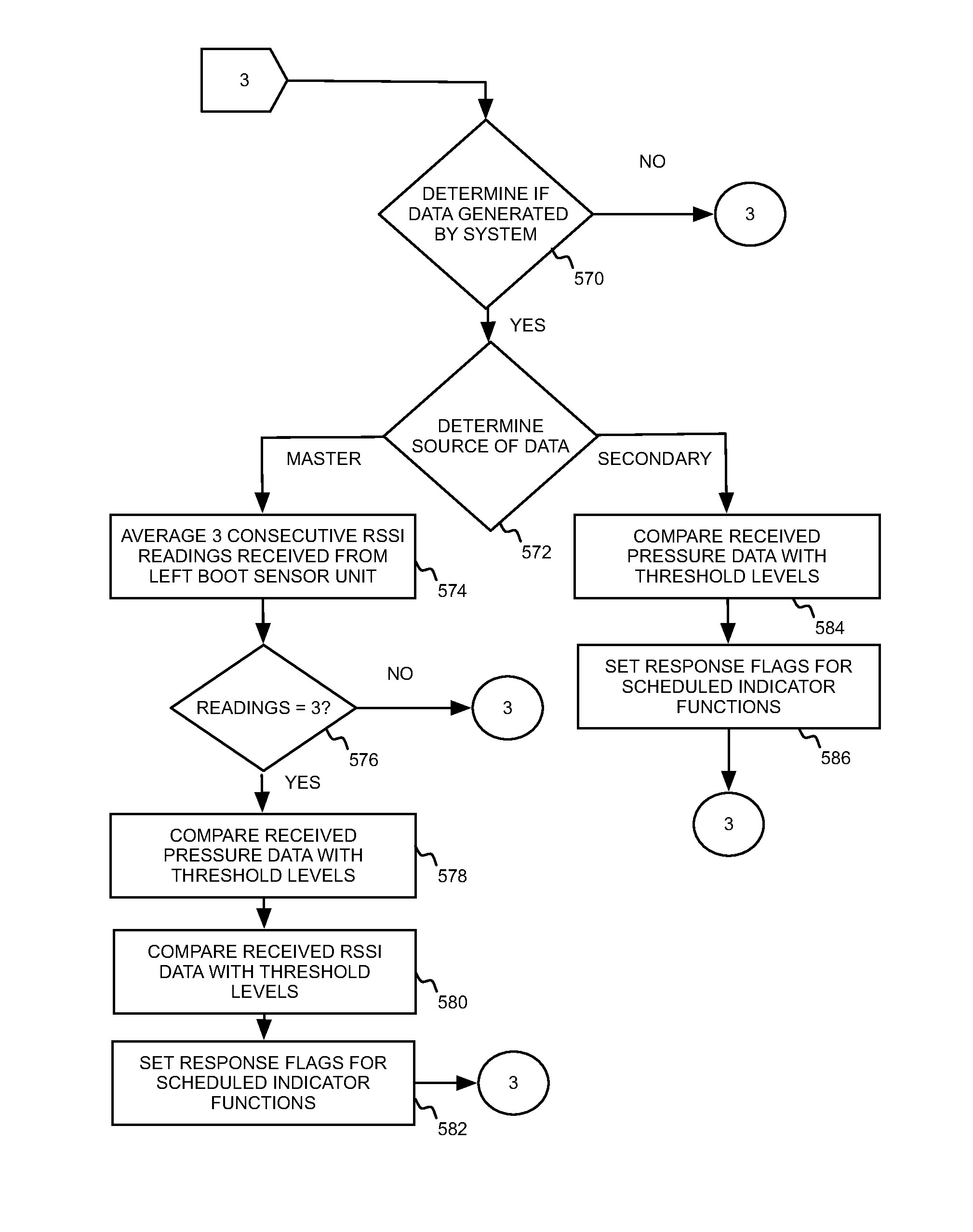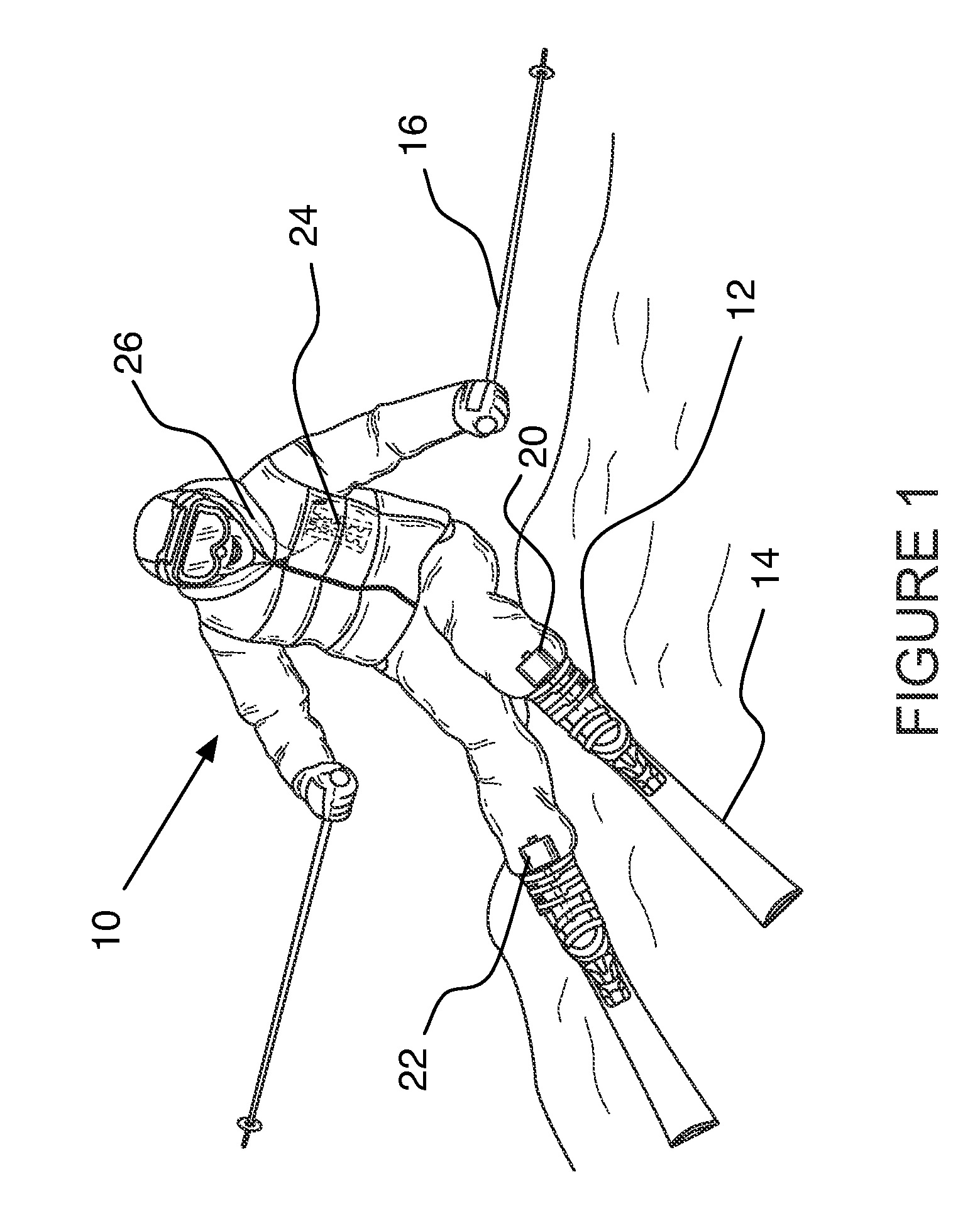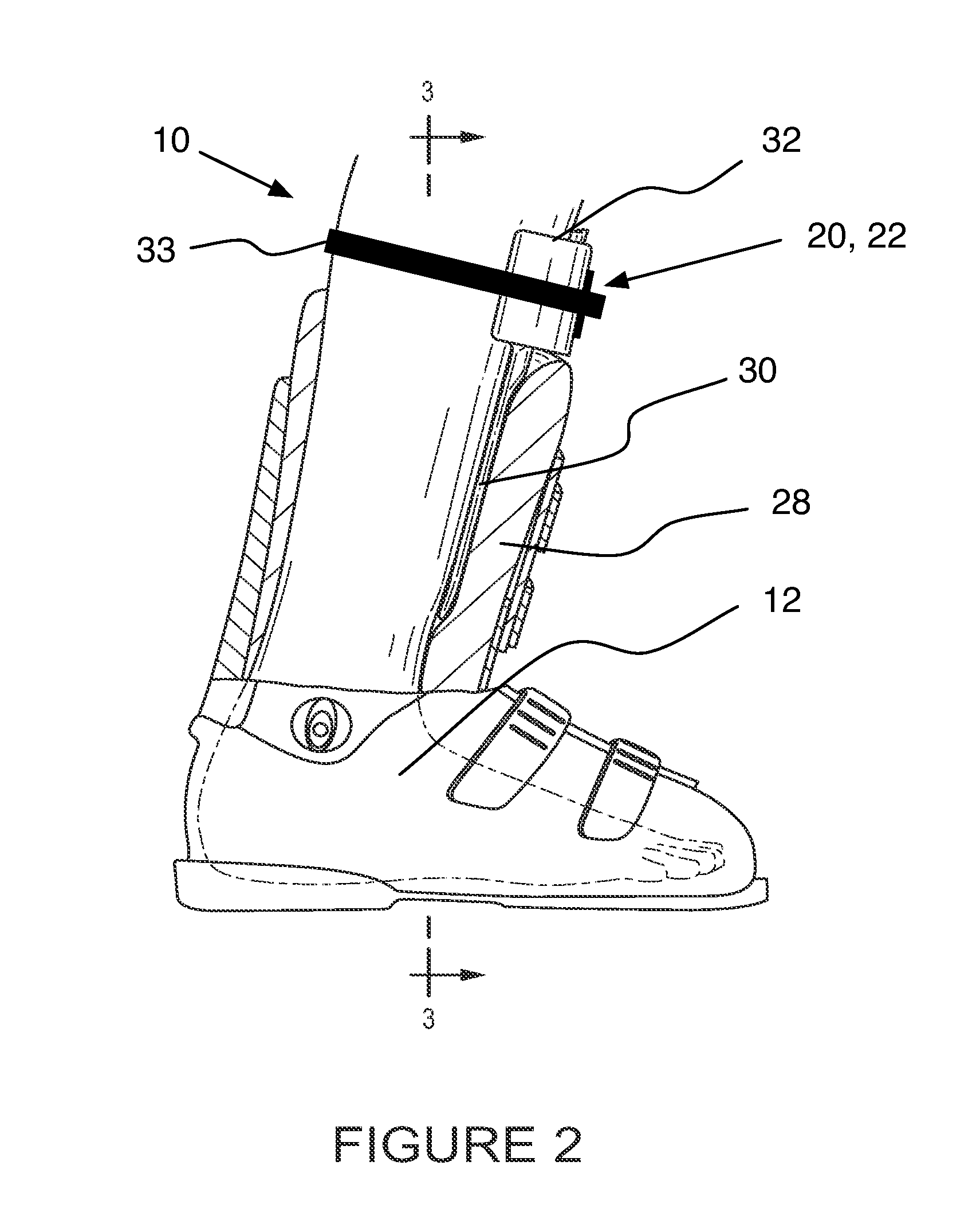Sport performance monitoring apparatus, process, and method of use
a technology of performance monitoring and monitoring apparatus, applied in the field of sports training devices, can solve the problems of racers losing edge control, difficulty in teaching proper form of ski turns, and difficulty in achieving full range of problems, so as to improve the quality and quantity of feedback, improve the accuracy of feedback, and facilitate the effect of determination
- Summary
- Abstract
- Description
- Claims
- Application Information
AI Technical Summary
Benefits of technology
Problems solved by technology
Method used
Image
Examples
Embodiment Construction
[0055]The following description provides examples, and is not limiting of the scope, applicability, or configuration set forth in the claims. Changes may be made in the function and arrangement of elements discussed without departing from the spirit and scope of the disclosure. Various embodiments may omit, substitute, or add various procedures or components as appropriate. For instance, the methods described may be performed in an order different from that described, and various steps may be added, omitted, or combined. Also, features described with respect to certain embodiments may be combined in other embodiments.
[0056]With reference to FIG. 1, a skier 10 wearing ski boots 12, which are connected to a pair of skis 14, and holding a pair of ski poles 16 is described. The skier 10 is using an exemplary embodiment of a sports monitoring system, which includes two boot sensor units 20, 22 in communication with a hand controller unit 24. The boot sensor units 20, 22 communicates info...
PUM
| Property | Measurement | Unit |
|---|---|---|
| exterior radius | aaaaa | aaaaa |
| exterior radius | aaaaa | aaaaa |
| depth | aaaaa | aaaaa |
Abstract
Description
Claims
Application Information
 Login to View More
Login to View More - R&D
- Intellectual Property
- Life Sciences
- Materials
- Tech Scout
- Unparalleled Data Quality
- Higher Quality Content
- 60% Fewer Hallucinations
Browse by: Latest US Patents, China's latest patents, Technical Efficacy Thesaurus, Application Domain, Technology Topic, Popular Technical Reports.
© 2025 PatSnap. All rights reserved.Legal|Privacy policy|Modern Slavery Act Transparency Statement|Sitemap|About US| Contact US: help@patsnap.com



